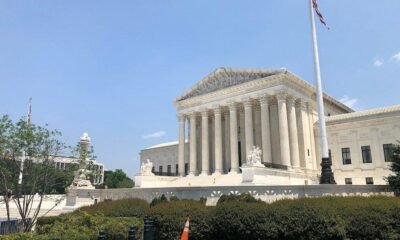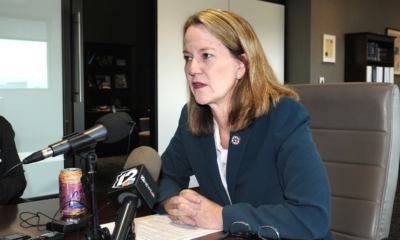2024
Supreme Court Revamps Attorney Discipline Rules

The Arizona Supreme Court has enacted new rules that restrict the rights of individuals filing complaints with the State Bar of Arizona. Under these regulations, only those with direct involvement in a case will have access to information and the right to participate in disciplinary hearings.
This change, prompted by an increase in politically motivated complaints surrounding election-related issues, received emergency approval ahead of the upcoming 2024 elections. Dave Byers, the administrative director of the Arizona Supreme Court, noted that many recent complaints had been filed by individuals with no direct knowledge or involvement.
“Complaints are emerging from third parties lacking evidence or direct connection to the cases,” Byers stated, emphasizing concerns over the integrity of the Bar’s complaint process. Previously, complainants could appeal dismissals or receive updates, which now will only apply to those with direct stakes in a case.
Advocates for the new rule argue that it addresses growing worries about the politicization of the complaint process. Conversely, opponents contend that the amendment undermines accountability for attorneys and limits transparency.
According to the amendment, only those directly involved in a case can access proprietary information or make formal presentations to the Bar. While anyone can still file a complaint, their rights to information and appeal will be significantly reduced.
Byers pointed to a notable increase in such complaints, especially since the 2020 elections, revealing that over 40 complaints related to elections had been filed by uninvolved parties since then. “Previously, these kinds of submissions were rare, but now we see individuals using hearsay and media reports as bases for complaints,” he noted.
Byers warned that the current complaint system risks becoming a tool for political agendas and that not addressing the situation could create an appearance of bias in the disciplinary process.
State Senate President Warren Petersen has expressed support for the rule change, linking it to broader efforts to address the perceived misuse of the complaint system. A proposed bill in the state legislature aimed to dismiss any complaints from individuals without an attorney-client relationship or substantial relevance to the situation but ultimately stalled.
Opposition has arisen from figures like attorney Dianne Post, who argued that attorneys have an ethical obligation to report misconduct they observe. She pointed out that her efforts led to multiple complaints against attorneys for filing what she considers baseless claims related to fraudulent electoral practices.
Post cautioned that the rule change risks obscuring accountability at a critical time. “We must ensure that the legal system works fairly and ethically,” she stated, reinforcing the argument that accountability is essential to uphold public trust.
The recent rule change follows the dismissal of an ethical complaint against attorneys representing notable political figures in Arizona, underlining the contentious atmosphere surrounding election litigation. The effects of these changes will be monitored closely, as the rule will undergo further public comment processes starting in October, with a decision on its permanence expected by December 2024.


















